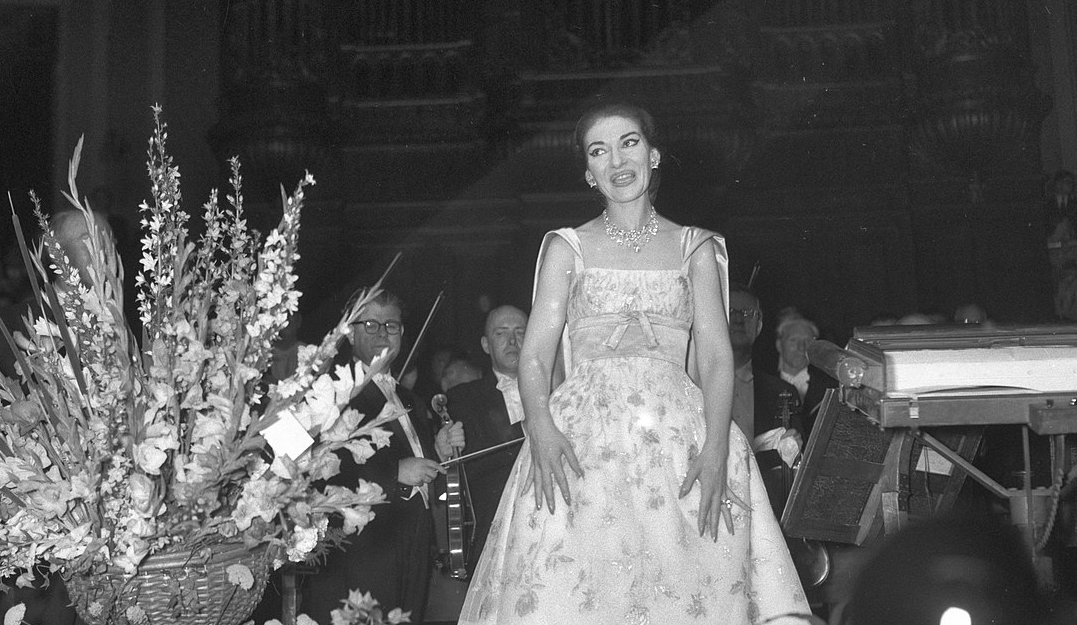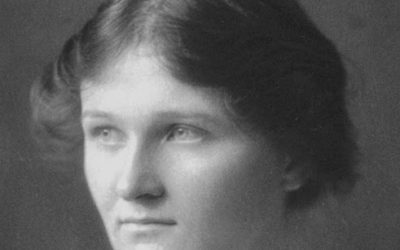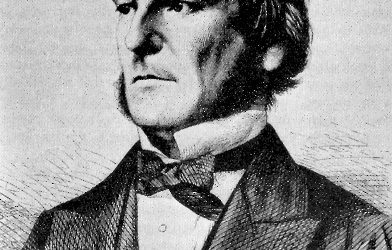Most of us are familiar with Hans Christian Andersen’s fairy tale The Ugly Duckling, in which a baby bird is born into a family of ducks who mock him for being ugly and clumsy, only to realize when he has grown into adulthood that he is not a duck at all, but a beautiful swan. The story’s enduring popularity stems from the timelessness of its themes: that appearances are often deceiving, that true beauty takes time to reveal itself, and that many of us discover our best qualities only after enduring a great deal of scorn and emotional pain.
The beauty of swans, and their mythological association with music, has made them a popular motif in ballet and opera. Appropriately enough, one of the greatest operatic sopranos on record considered herself an “ugly duckling,” a shy and awkward girl who matured into a composed, powerful singer whose vocal range and technical brilliance were legendary.
Maria Kalos (her father had already shortened the family’s name and would later Americanize it further to Callas) was born in Manhattan on Dec. 2, 1923. Her family life was difficult from the start, because her parents, George and Litsa, had a very troubled marriage and were constantly at odds. To make things worse, her mother had expected to have a boy when Maria was born, and she made no effort to hide her disappointment from her infant daughter. As the young girl grew up, her only way of gaining maternal approval was to sing and perform; Litsa had always wanted to be a singer herself, and she pushed her daughter into performing when she was still practically a toddler.
Callas suffered from deep feelings of rejection and insecurity through practically her entire childhood. She saw herself as the “fat,” “unpopular” child of the family who was always pressured to make money and impress her mother’s acquaintances by singing in order to justify her existence. Early on, her father had tried to push back against Litsa’s exploitative behavior, but when Litsa moved back to Athens in 1937, taking her two daughters with her, Maria was left with no protection against this abuse.
It was during this time in Athens that Callas began her first serious music lessons. Her teacher, Maria Trivella of the Greek National Conservatoire, later remembered her as a “plump” girl who wore large glasses because of nearsightedness, but also as a remarkable student who was devoted to music and gifted with unique vocal talents. Later teachers recalled that she would spend up to ten hours a day training and listening to other students to develop her technique. Her diligence paid off, and within a few years she was being praised as a great new talent by critics all over Greece.
Her teacher now suggested that she go to Italy, the center of the operatic world, but Callas instead chose to relocate to the United States, in part so she could see her father again. She was just as impressive in America as she had been in Greece, and by the early ‘50s she had made her way to the greatest stages of Italy as well, debuting at the immensely prestigious Teatro alla Scala (La Scala) in December of 1951. Despite this success, she continued to struggle with feelings of inferiority. Callas did not enjoy the sound of her own voice, and many critics described it as strong but harsh. More important to her than this, though, was the issue of her weight.
Callas had always been “heavy,” as she put it, and there was no doubt in her mind that this was a limitation on her career. In an effort to reinvent herself, she lost nearly 80 pounds over a little more than a year, completely changing her appearance and, in the estimation of many commentators, becoming a great beauty. Sadly, it was this change that marked the beginning of the end for her operatic career. During the late ‘50s, her voice began to grow fragile and unsteady, and by the early ‘60s she was compelled to retire from the stage. The extent to which her sudden weight loss contributed to this vocal decline is still debated today, but many in the opera world are convinced that the associated strain and physical changes altered her voice permanently. It was still a beautiful voice, and one full of personality, but its power was lost forever.
Maria Callas’ story is an inspiring one, but it also serves as a cautionary tale. Her voice and appearance were both unique among operatic sopranos of her time, but while her voice won praise and admiration from the public, her appearance was the target of criticism and opprobrium from both her family and her colleagues. Callas succumbed to this criticism, and in her efforts to appear more as she thought the world wanted her to be, she put at risk the greatest asset she possessed. In this, Callas resembles another character from a fairy tale by Hans Christian Andersen: the Little Mermaid, who sacrifices her beautiful voice to be able to walk freely among normal people.
Still, Callas’ story stands as a record of great accomplishments. She emerged from a dysfunctional family and crushing feelings of inferiority to shine as one of the most acclaimed singers of all time. Her unique performances changed the way critics thought about opera, revived arias that hadn’t been sung in theaters for decades and made her a legend in her own time. In the words of the Italian conductor Antonio Votto:
“She was not just a singer, but a complete artist. It’s foolish to discuss her as a voice. She must be viewed totally—as a complex of music, drama, movement. There is no one like her today. She was an esthetic phenomenon.”
Next Post: Ludwig Guttmann, the German neurologist who survived Nazi persecution to found the Paralympic Games in England.














